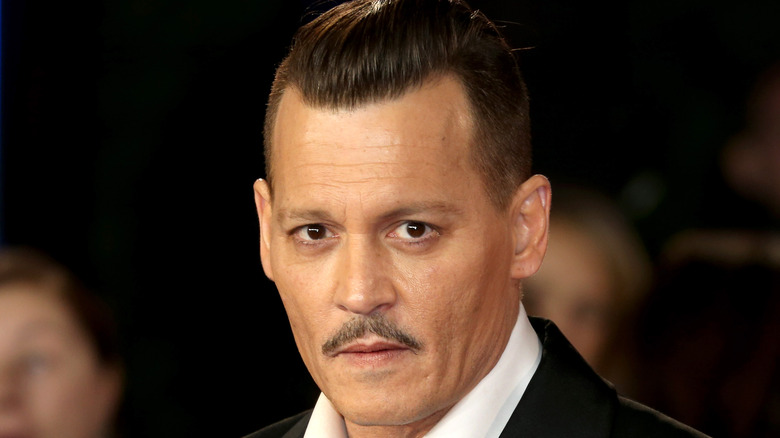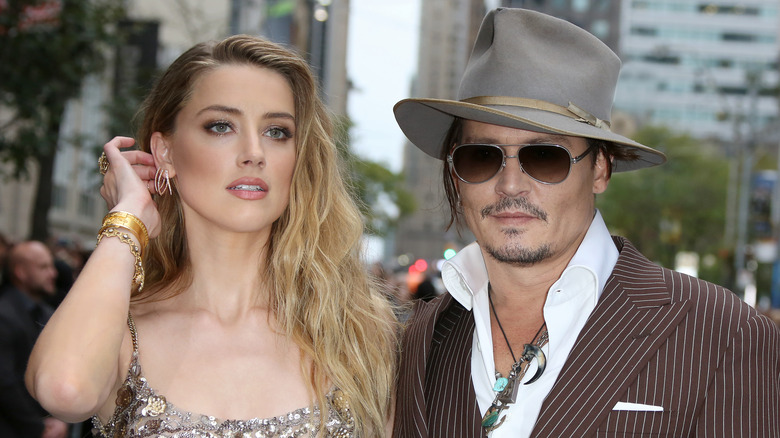Johnny Depp Addresses The Claims That He Tried To Control Amber Heard's Career
The ongoing defamation suit between actor Johnny Depp and his ex-wife, actress Amber Heard, continued apace Monday as Depp offered testimony on the witness stand. It's just one more step in a contentious and turbulent legal process that has left both actors battling accusations regarding their reputations and legacies.
Per CNN, Heard and Depp's relationship lasted from a 2009 meeting on the set of the film "The Rum Diaries" through 2016 when Heard filed for divorce after just one year of marriage. Heard obtained a restraining order against Depp during the process of the divorce, claiming that he had abused her while intoxicated. Via Vulture, Depp sued Heard for defamation for $50 million in 2019, claiming his reputation was damaged by her 2018 op-ed piece for The Washington Post titled, "Opinion: Amber Heard: I spoke up against sexual violence — and faced our culture's wrath. That has to change." While she didn't name Depp in the piece, he alleged that the article caused him to lose out on some plum parts.
The actress has since countersued Depp for $100 million. While her case awaits trial, his has finally come before a judge. During questioning today, Depp addressed claims that he tried to control Heard's career.
Depp claims such accusations are 'patently untrue'
Via live-streamed testimony of Monday's trial, as archived on Entertainment Tonight's official Facebook page, Heard's attorney Ben Rottenborn cross-examined Depp, showing him screencaps of a text message conversation between himself and the actress where he expresses apparent frustration with her choice to take a coffee meeting instead of joining him in an unspecified activity as planned.
"You tell her, no (expletive) meetings, no movies because you didn't want her acting, you wanted to control her career, correct?" asks Rottenborn.
"That's patently untrue," Depp can be heard saying, as his own attorney objects, drowning out the rest of his statement. In the clip, he later says that Heard had come to him for career advice because she "wanted to escape the chains of being objectified." He goes on to claim that he gave her advice to help her avoid the pitfalls of stereotypical casting, having been through a similar situation when it came to typecasting in his own career.
As of press time, the trial is ongoing.

